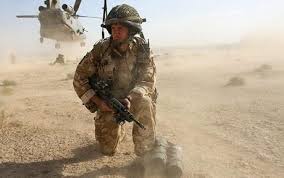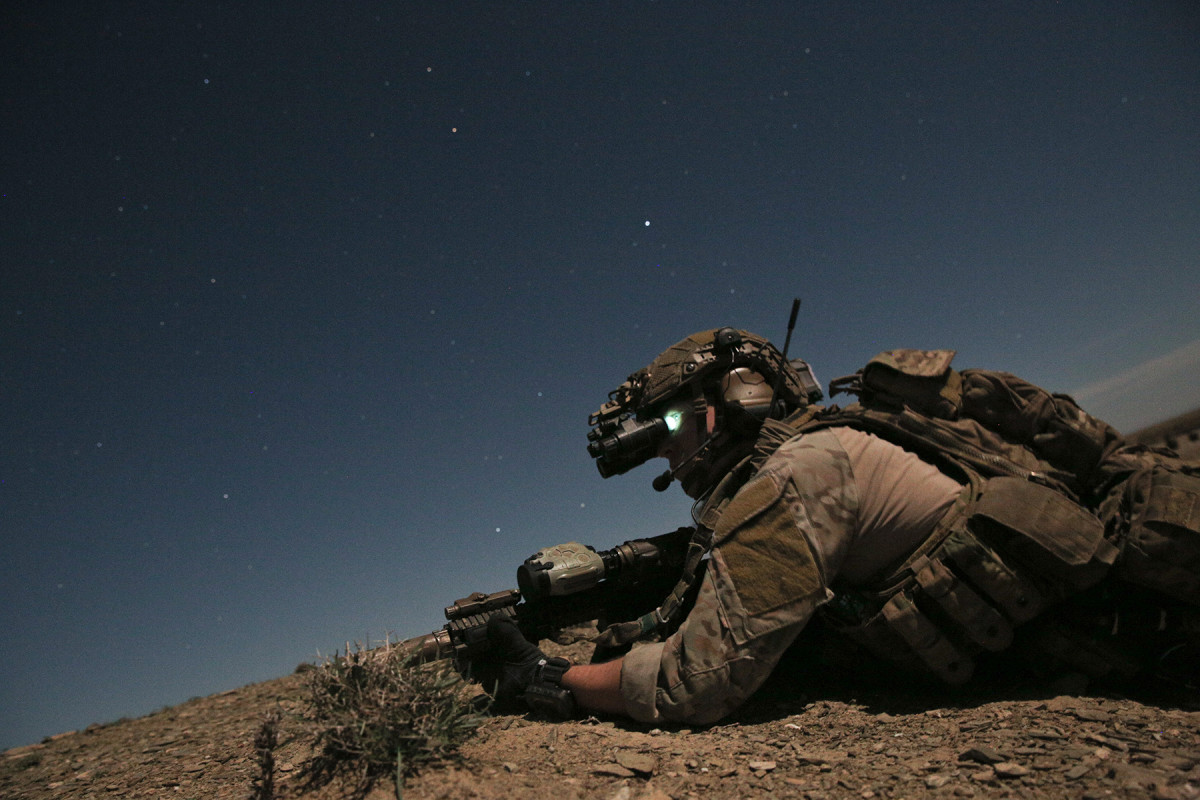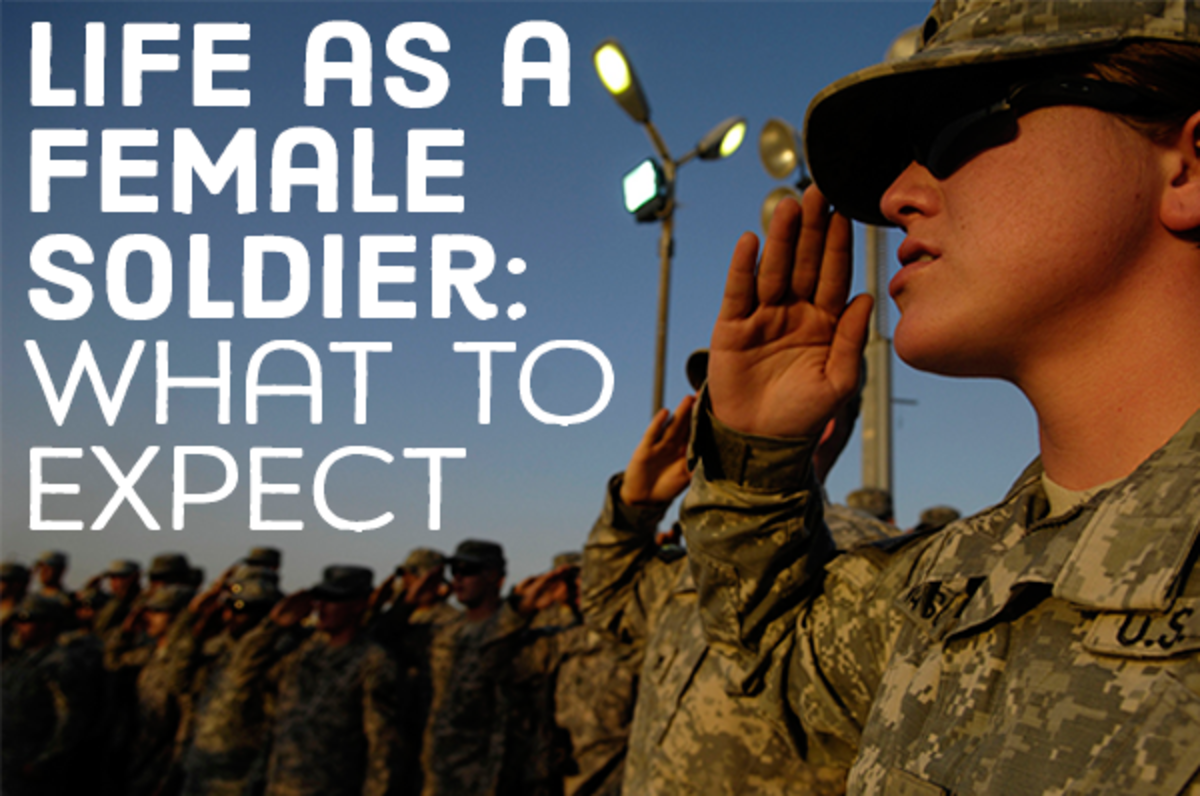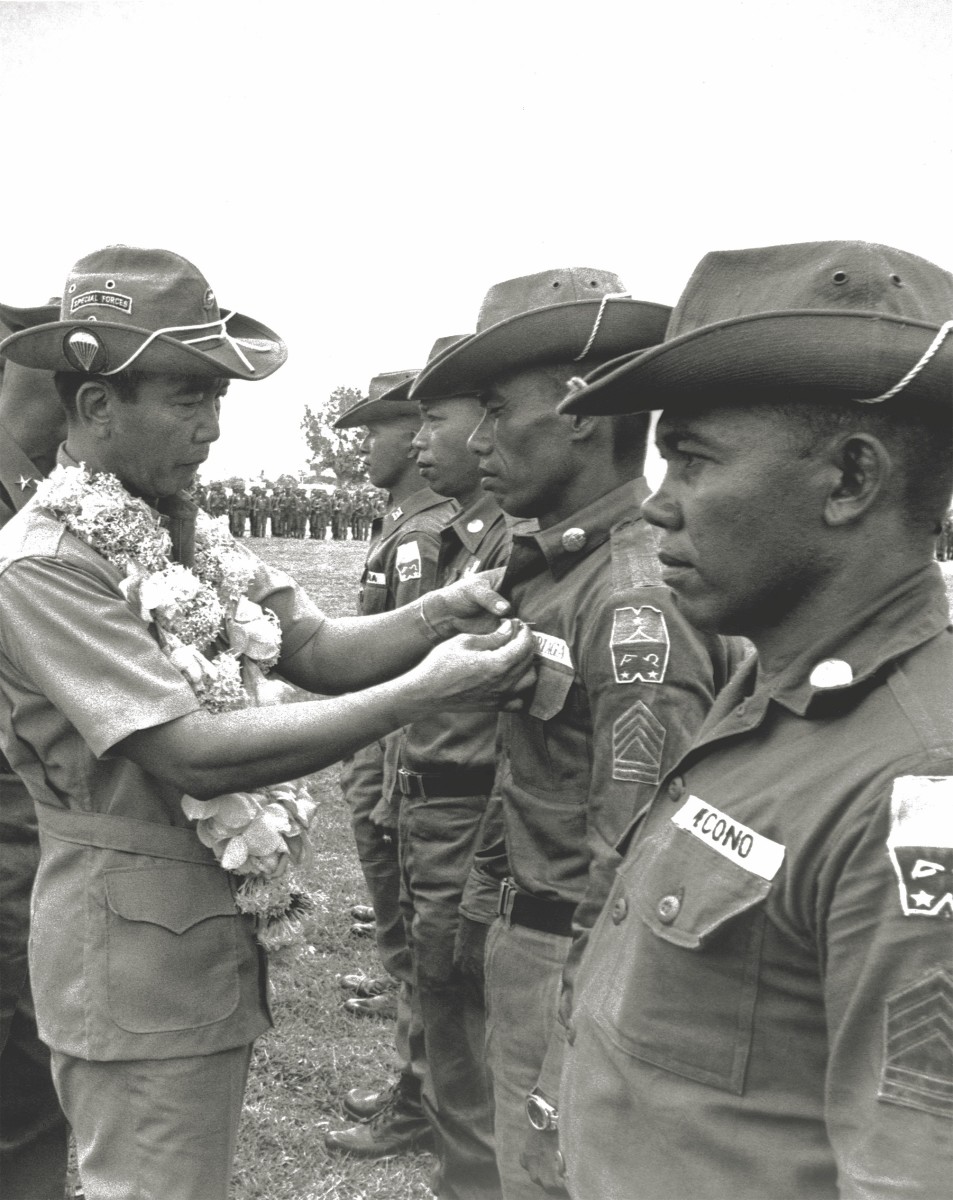To be a Soldier
On Patrol

The honor of the uniform
This is a hub I've been thinking about since I read about Micheal Moore's statement about Snipers and some of the replies that I saw on that forum. I've wanted to let people know just what it takes to put on the uniform of your country and proudly serve with distinction.
I'm writing this hub partly from personal experience (I proudly served six and a half years) and partly from the book by Chris Ryan called 'Fight back' a book about what it takes to make the Special Forces.
The main reason for writing is to give some of my fellow hubbers an idea of what it's like to serve and why people volunteer to literally put themselves 'in harms way' for the sake of others.
While I'm primarily talking about 'being a Soldier' or serving the the Armed forces much of what's here can also be said about the people who join organizations like the Police, the Paramedics and the Fire service (to name a few) and it's my hope that after reading the hub you'll have a new appreciation of what they do.
"Who Dares Wins"
— Special Air Service MottoWhat does it take?
Well, what does it take?
For most of us the only real thing we know about the Armed forces is what we've seen in the movies, on TV and read in the news, but they can only tell part of the story. They can't tell you how good it feels when you're there on parade (ironically in Britain it's called the passing out parade and you're so nervous you're not sure you will literally 'pass out') and you know Mum and Dad are there in the crowd looking for their young 17 or 18 year old child standing tall among their comrades, ready to go and serves wherever they are sent.
Getting to that stage takes preparation and much of it isn't really done on the drill square, or in the mud during training! A lot of it's done well before you even think of enlisting! It's done in the mind!
A soldier's main weapon isn't the rifle they hold. It's the brain between the ears! and that's the first thing that the soldier will learn to use.
Sounds ironic really, I mean aren't soldiers supposed to just obey orders? Yes, but they're also supposed to issue those orders and make sure that others around them stay safe or as safe as can be.
If you were to line ten Soldiers, Seamen, Airmen, Police or Firefighters and ask them what made them join I would say that 99% couldn't put the reason into words, it's just something they knew that they would do! Maybe their Parents were in the Service and they found themselves wanting to be like them. Either way they just knew that this was the path they would take.
Here comes Basic training
One Day London, before the Queen, the next Kabul!
That's what happened to the Scots Guards back in 2011, and it's just part of the life of a soldier. The one minute you're on show at a ceremonial event with friends and family watching (maybe even the President or the Queen) and the next day you're deployed into a combat zone chasing down the enemy!
I've got to explain here that the Guards division in the British Army isn't a regiment that you just decide one day to join! There has to be a connection! It can be family (your father was in the regiment or your brother) or you have to be determined, but just rolling up and expecting to get in isn't going to cut it!
From the day that a person makes that choice to join selection begins and every day situations will present themselves that will test your resolve!
The first weeks after enlisting you're sent to basic training and you are taught just that. You're taught the basics of being an infantry soldier. Like it or not, no matter what you do in the Army you are primarily an infantry soldier!
"But I'm going to drive a tank!" I can hear people saying. That might be, but what happens if your tank's taken out by an anti tank weapon? You bale out and need to know how to fight as infantry!
Basic training usually takes about six to eight weeks and is the same for every soldier joining up. That's when they take the unfit civilian that joins (believe me no matter how fit you think you are you're in for a shock! It's not fit enough)
Basic is about building stamina and also about building teams. The squad needs to know that they can trust everyone in it and that's what it's about. Out on a run, no one is finished until the last one crosses the line and if that means carrying their unconscious body over (we never got that far but I remember sat least one time with sick men being carried by two of us just to finish the course) then that's what you do.
You've got to realize here that the Armed forces never flunk anyone out of 'Basic' of 'Boot Camp' you are the one that pulls the plug here because they are looking for those that keep going no matter what the obstacle. There's a saying that sums this up "When the going gets tough, the tough get going!" This is where the confidence is built. When you finish basic you know you can take on the world!
You never know what's coming next.
Basic or 'Boot camp' is over, now what?
When I was leaving the Army a few years ago I got the chance to spend a day with the London Fire Brigade. Firefighters are among the bravest people on the earth and after that day I was more convinced than ever.
The average firefighter in the UK spends twelve weeks in training learning to use the equipment and building up their fitness. In the London Fire Brigade it's fourteen weeks with the last two weeks spent training in a four storey gas chamber that can be heated to 350 degrees Fahrenheit training to work in a real building with the idea that the better the training the more lives will will be saved.or
The same goes with the 'trade training' for the servicemen and women in the armed forces. Learning not just the basics of their trade but how to operate whatever system they use in just about every situation you can imagine and some that you can't imagine.
Drivers don't just learn how to drive a vehicle but how to fix it when things go wrong, driving it in any conditions you can think of.
Of how about flying? There are over two hundred different careers that you can train for in the Military (that's what I know of, probably many more) everything from a Musician (who also often double up as Unit medics when deployed into combat situations) to a Medical Doctor (with awesome trauma experience but not just trauma work, you'll encounter some exotic and strange diseases (not all caught by soldiers or sailors in strange places!) to Engineers etc.
How much does it cost to pay for a degree? Even with student loans it can run into hundreds of thousands of dollars and either you have a rich uncle or you're paying it off for the rest of your life (how long does it take to pay off a $100k loan at 7% and a $300k Mortgage at 6%?).
No matter what you want to do you can pretty much guarantee that the Military is looking for someone willing to study that career option and is happy to pay for it provided they want to work in that area for a few years!
Just think, studying medicine at one of the best universities in the World (I met a Doc in the Army who studied it at Oxford and the Army paid for her degree) all paid for by your employer, then coming out and getting the best hands on training for years, along with experience that any employer would give their right arm for someone with that experience.
I also had a mate when I was working in Iraq who studied marine engineering and one of the best Universities in the United states (paid for by the US Navy) and the only stipulation was that after finishing the study (and a gap year he managed to get) he spend four years in the Navy as an officer.
All they are looking for are men and women of integrity who are willing to work as a team.
What about taking one of these to work?
How about one of these?
Further training
The truth is there might be a lot of reasons that people join the forces and serve their country, but there is one that keeps them serving and that's the friends they make. Actually friends is a bit of a wrong word for it. Not really a close enough word as the mates you make are with you through every situation that comes your way. For six years when I was in the Army there were four of us who went through just about everything together
In this hub we've only really dealt with the basic soldier and haven't got on to the further training that goes on once the basic soldier joins his or her unit. They never stop training and honing the skills that the basics were learned during their training. Even in peacetime the soldier, sailor and airman will spend up to three months of the year carrying out further training. When a deployment to active service comes then they undergo six months of training for that deployment. Deploying to Iraq for six months will mean six months of training for that deployment, and it's not gentle training but as near as possible re-creating the situations they will face on a daily basis with real injuries happening and real situations faced. The idea is that for every injury hopefully it saves a couple of lives. The thought of danger and what faces them is never really far away.
Why this hub?
Today we are on the cusp of sending troops back into harms way, men and women whose one desire is to serve their country with honor and integrity. We may not fully understand what makes a person be willing to stand in 'harms way' to willingly put themselves in danger to protect the weak and so that they can live in safety protected by those who 'stand on the ramparts of freedom' but hopefully this hub has helped folks to understand just a little of what it really means to be a soldier.
There are those in the Military who will go on from the basics of being a soldier, or sailor and into the more specialized units. Units that take on much more dangerous roles like going deep behind enemy lines to observe what they are doing and where necessary to deal with the potential threat. By using these special forces they are able to keep innocent casualties to an absolute minimum. Special forces is usually something that you can only apply for after six or seven years in the Military but that's for another hub. Or better yet read the book below to get a better picture of what's required.
What are the Special forces like?
Just an introduction
This hub is very much just a brief introduction into the world that you enter when joining the Military and an attempt to give those who've never been in the Military some background to help them understand some of the issues that confront those who willingly put themselves in 'harms way' so that others can live in peace and prosperity.
I hope that you've enjoyed the hub. Maybe even learned a little from it. I'd love to hear from you and hope that you'll leave a comment below.







